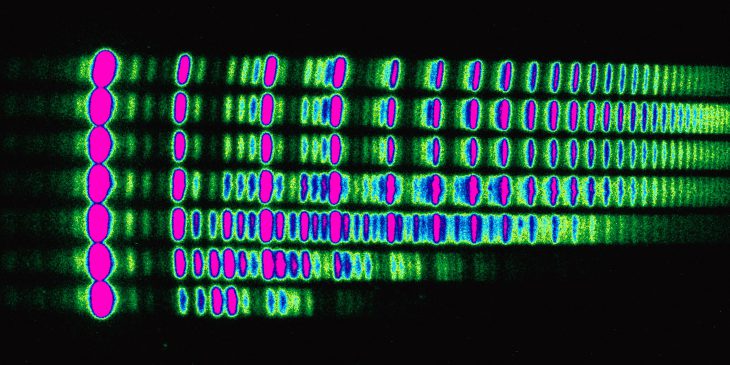HIV patients tend to show premature signs of aging. Cancer, cognitive diseases, osteoporosis – these maladies all come before their time for people living with HIV. But it’s not clear why.

Samantha Sanford
“The big question for HIV patients is whether the virus itself is causing aging or the drugs being used to treat the virus,” said Samantha Sanford, a Ph.D. student in the Pitt Graduate School of Public Health and lead author on a new study published in Nature Communications that provides an answer.
Sanford and colleagues at UPMC Hillman Cancer Center found that HIV drugs hasten aging, at least in part, by blocking telomeres – the protective tips on the end of our chromosomes – from replenishing themselves.
Telomeres insulate the important genes encoded in our DNA from getting clipped off when cells split and multiply. The enzyme telomerase works against this process, lengthening the telomeres, but as we age, our telomeres get shorter and their protective power diminishes, ultimately resulting in cell death.
Sanford and colleagues found that popular HIV drugs azidothymidine triphosphate (AZT) and dideoxyinosine triphosphate (ddITP) act as “chain terminators” to stop telomeres short, likely accelerating aging.

Dr. Patty Opresko
Sanford’s mentor and senior author on the study, Dr. Patty Opresko, explains chain terminators with a LEGO analogy. Each brick represents the bits of DNA that make up a telomere, and telomerase is the hand that fits the bricks together, one on top of another, in a tall tower.
“The chain terminator is like a LEGO with the top pegs smashed in,” said Opresko. “The bottom part is still ok, but since the top is smashed, you can’t add anything on top. The tower just stops growing.”
AZT and ddITP trick telomerase into adding them to the end of the chromosome, and once they’re snapped in place, telomerase can’t add anything else.
Being a cancer researcher, Opresko wondered if certain cancer drugs might be doing the same thing.
Tumor cells have unusually high levels of telomerase, allowing them to multiply and survive unchecked. Scientists are trying to develop drugs that work by shutting down telomerase so that tumor cells can’t maintain their telomeres and then die.
In particular, Sanford found that 6-thioguanine – an effective but harsh preclinical drug for acute myeloid leukemia – acts similarly to the HIV drugs she was studying. It’s so good at fooling telomerase into inserting it into the regenerating telomere that the minimum effective dose for treating cancer in humans could be quite low, meaning less toxicity for the patients who might ultimately use it.
“Sam was the first to show exactly how these drugs stop telomeres from replenishing ,” Opresko said. “Before her study, no one had demonstrated that telomerase could take one of these chain terminating drugs and tack it onto the telomere LEGO tower.”
For people living with HIV, that means the drugs they use to keep their infection at bay over time may be contributing to premature aging, and by knowing how that happens, scientists can avoid this major drawback when designing future antiviral medications. On the flip side, blunting telomeres could be an effective way to kill cancer cells.








